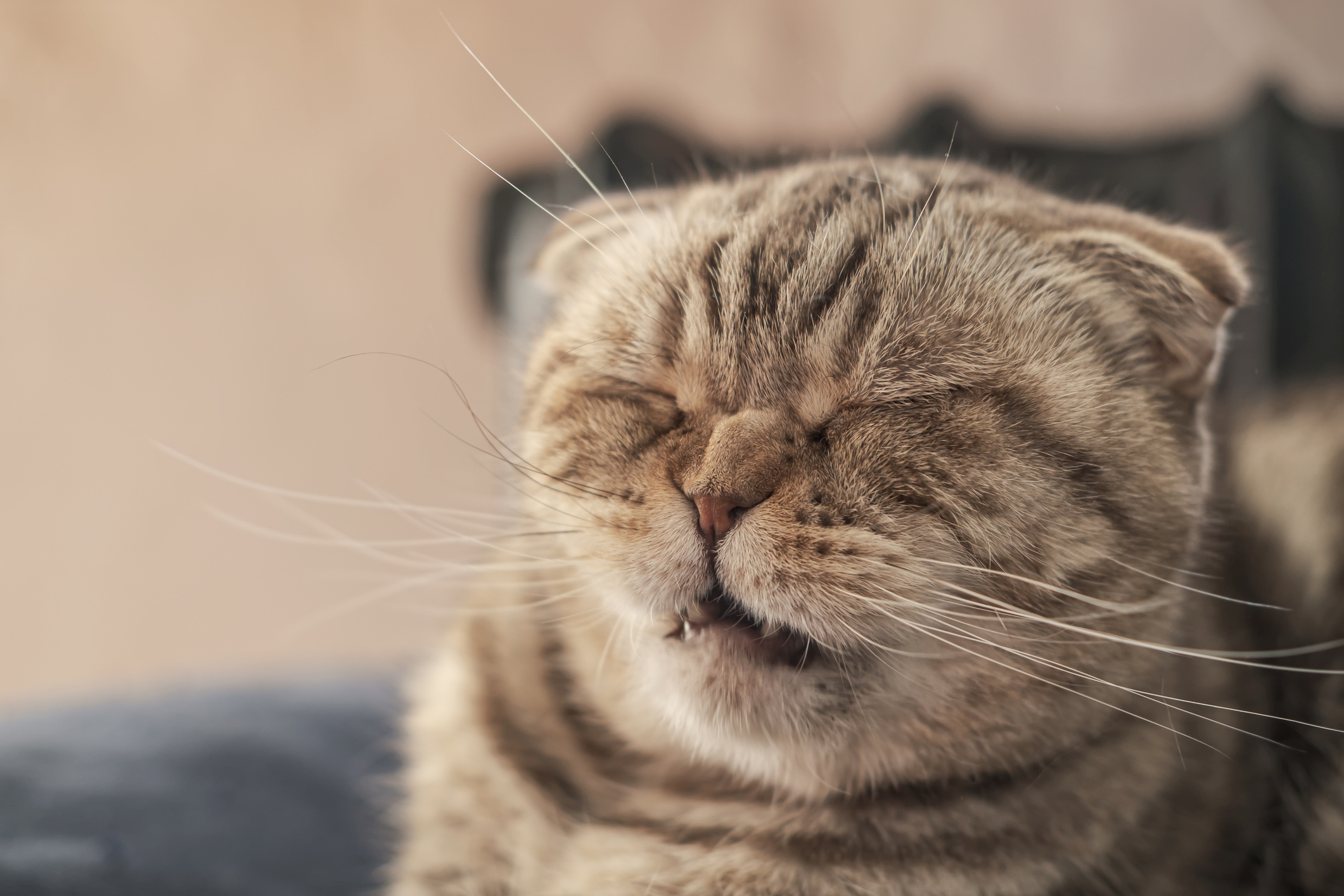Common Feline Allergies & How to Combat Them

Cats bring purrs, fluffy fur, and boatloads of joy to our lives. It can be hard to watch a feline friend itch, sneeze, or experience seemingly unexplained digestive issues. But a relatively straightforward culprit could be to blame: feline allergies.
Today, the team at Allure Veterinary Partners is here to help demystify the three main causes of feline allergies.
1. Flea Allergies
One of the most common feline allergies is flea allergy dermatitis, or FAD. This condition happens when a cat has an allergic reaction to flea saliva. Those stinky little buggers can transfer saliva to your pet with just one bite, leading to intense itching, skin irritation, and even hair loss.
The good news is, there’s an easy fix: staying on top of flea prevention.
After your vet treats the current allergic reaction, of course! Once your pet is more comfortable, talk to your veterinarian about the preventives your cat can take to keep the fleas away.
Here are a few additional tips for flea prevention:
- Keep your home and yard clean
- Wash your cat’s bedding 2-3 times a month
- Treat both the cat and her environment anytime a flea infestation happens
With these tips, you can resolve and prevent pesky, allergy-causing fleas from putting a damper on Kitty’s life (and yours!).
2. Environmental Allergies
Many cats react to allergens in the environment around them, just like humans do. Irritants like pollen, mold, dust mites, and household chemicals can cause a slew of symptoms. These include:
- Respiratory issues
- Watery eyes
- Skin irritation
To combat environmental allergies, use hypoallergenic, pet-safe cleaning products. Consider bringing an air purifier into your home to help remove irritants from the air. If your cat doesn’t get better, consult with your veterinarian. Antihistamines or allergy shots may be necessary to manage your feline friend’s symptoms.
3. Food Allergies
Food allergies in cats can be tricky to diagnose, but they often present with vomiting and diarrhea. These gastrointestinal symptoms don’t typically happen with flea or environmental allergies. Your cat can also suffer from repeat ear infections and excessive itching from food allergies.
The most common culprits for food allergies in cats are proteins like fish, beef, or chicken. Which, of course, are found in most cat foods. This is why diagnosis can be a challenge—and why it’s key to talk to your veterinarian right away if you think your cat might have a food allergy.
Your vet may recommend an elimination diet, which can help pinpoint the allergen that’s causing your cat so much trouble.
Managing Feline Allergies
No matter the type of allergy your cat has, it’s important to get a proper diagnosis. The sooner your veterinary team can identify the cause of your kitty’s discomfort, the sooner they can treat it.
If your cat is struggling with any signs of feline allergies, reach out to the friendly team at Allure Veterinary Hospital. It’s easy to book an appointment using our online form today.

